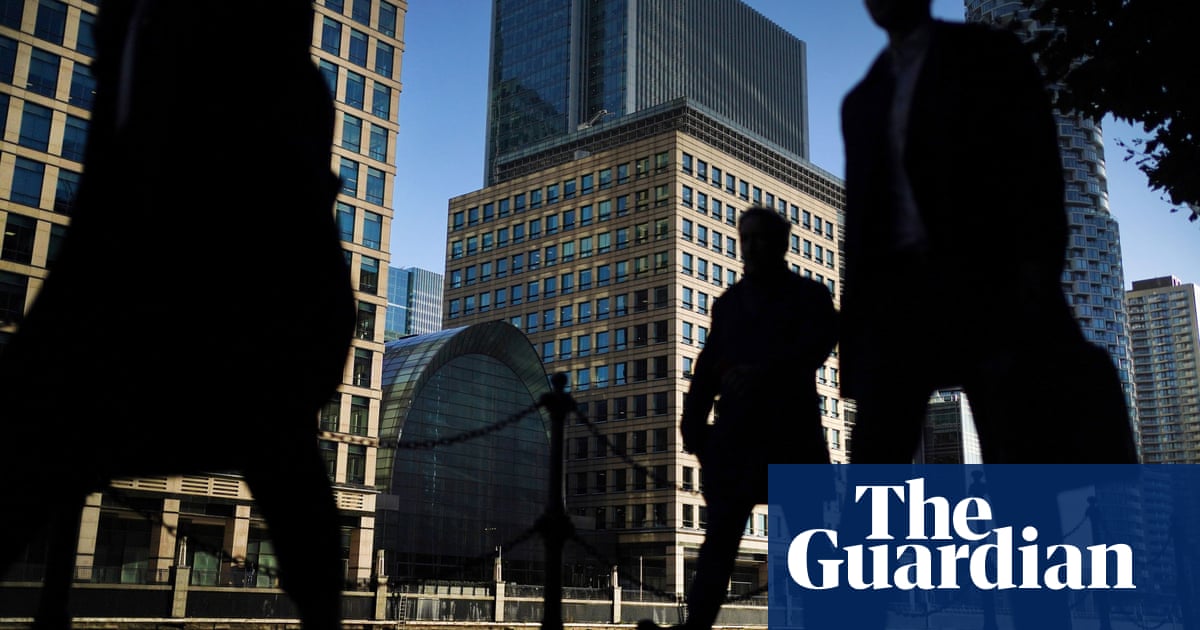
The UK economy faces deeper economic scarring than other G7 economies because of the impact of Covid-19 and Brext despite being on track for its fastest growth since the second world war, the Organisation for Economic Co-operation and Development (OECD) has predicted.
In its latest economic outlook, the Paris-based thinktank sharply upgraded its view for UK growth, thanks to the success of the Covid-19 vaccination programme.
It forecasts that UK GDP will rise by 7.2% in 2021, the fastest growth since 1941, after a 9.8% contraction in 2020 – the worst in almost 300 years. That would outpace other advanced economies, including the US. Back in March, the OECD had forecast UK growth of 5.1% this year. For 2022, growth has been revised significantly higher, too – to 5.5%, from 4.7% three months ago.
However, the OECD also warns that the UK could suffer more longer-term economic damage than other G7 industrialised nations, with the impact of leaving the EU adding to the disruption of the pandemic.
The OECD examined how much potential output has been lost because of the coronavirus crisis, by comparing the latest projections for national income levels in 2025 with pre-pandemic forecasts.
It found that Japan, Canada and the US will only suffer limited scarring, with the US economy expected to be larger than previously forecast in four years’ time because of massive government stimulus.
However, major eurozone members could experience a 0.3% annual decline in potential economic output, while the UK’s growth rate could be 0.5% a year lower than previously expected. The OECD said this was partly down to the impact of leaving the EU, as well as Covid-19.
“The United Kingdom could suffer the biggest reduction among G7 countries (a decline of 0.5 percentage point per annum), in part reflecting the additional adverse supply-side effects from 2021 following Brexit.”
The report also warns that “increased border costs following the exit from the EU single market will continue to weigh on foreign trade”.
The OECD said: “Trade contracted in early 2021 as a consequence of leaving the EU single market and containment measures, but will recover slowly.” It added that a closer relationship with the EU, particularly for the trade in services, would improve the UK’s medium-term economic outlook.
Official figures last week showed that UK-EU trade fell by almost a quarter at the start of 2021, compared with 2018, following the end of the transition period.
The OECD predicted the UK’s services sector would rebound briskly this year as retailers, pubs, restaurants and other hospitality businesses reopened after the lockdown.
“The progressive easing of public health restrictions will allow for a solid rebound,” the OECD explained. “Consumption will bounce back sharply as hard-hit hospitality services and retail trade reopen.”
Households are expected to spend some of the savings accrued during the lockdown – but the OECD cautions that less well-off families have suffered more from the coronavirus pandemic.
“Some additional spending by wealthier households with secure jobs and excess savings during the crisis is projected to be counterbalanced by households in lower-income brackets who saved less during the crisis and are set to be more affected by a weak labour market and the winding-down of Covid-19 supports.”
The UK’s unemployment rate is forecast to rise to 6.1% by the end of the year as the furlough scheme ends, up from 4.8% in the first quarter of 2021.
The OECD has also raised its forecast for the world economy this year, with widespread vaccination deployment allowing firms to reopen and the US president Joe Biden’s stimulus plans boosting global demand. It predicts global growth of 5.8% this year and 4.4% in 2022, up from 5.6% and 4.0% respectively back in March.
The US is forecast to grow by 6.9% this year, up from the 6.5% forecast in March, while eurozone growth has been upgraded to 4.3%, from 3.9%.
However, the OECD’s chief economist, Laurence Boone, said that the recovery was uneven, with “lots of frictions”. She warned that new Covid-19 variants could derail the recovery, underlining the importance of ensuring that emerging economies are vaccinated too.
“It is very disturbing that not enough vaccines are reaching emerging and low-income economies. This is exposing these economies to a fundamental threat because they have less policy capacity to support activity than advanced economies,” Boone said.
As long as the vast majority of the global population is not vaccinated, the whole world remains vulnerable to the emergence of new variants, she added.
“Confidence could be seriously eroded by further lockdowns and a stop-and-go of economic activities. Firms, so far well protected but often with higher debt than before the pandemic, could go bankrupt. The most vulnerable members of society would risk further suffering from prolonged spells of inactivity or reduced income, exacerbating inequalities, across and within countries, and potentially destabilising economies.”
Scientists have warned UK ministers that a third wave of coronavirus may have already begun in Britain, which could affect plans to lift England’s lockdown restrictions in three weeks’ time.












